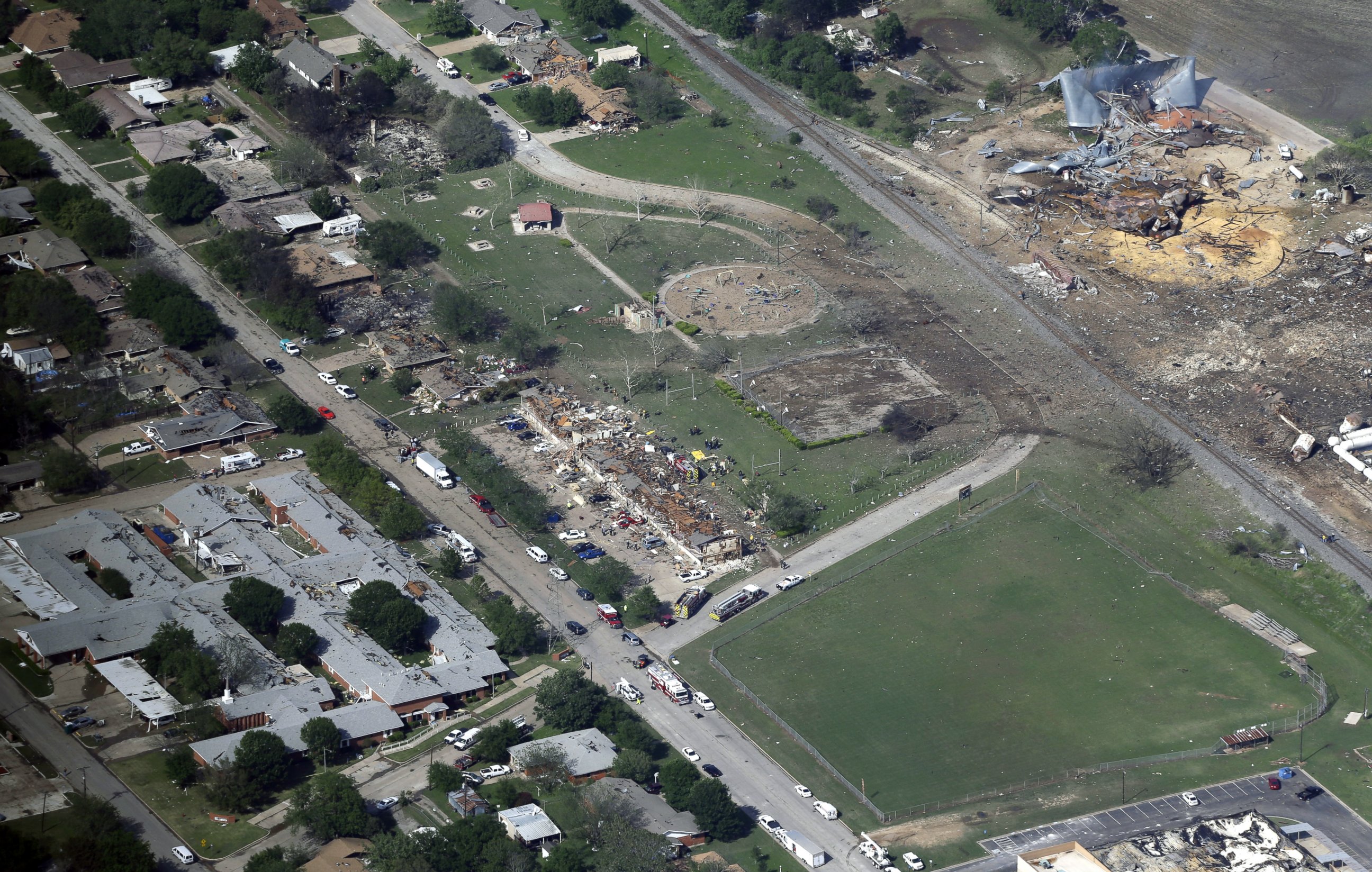EPA may roll back chemical plant safety rules
The rules set new standards for how companies communicate with the public.
— -- Environmental Protection Agency Administrator Scott Pruitt has delayed regulations that were made in response to a 2013 explosion at a fertilizer storage plant in West, Texas, that killed 15 people and injured more than 250 others.
The effective date of the rules, focusing on preparing for chemical accidents, has been pushed back to June 19, according to the EPA. The public comment period for the rule has been extended to May 13, which will allow time for the agency to decide if it wants to further delay the rule.
Last December, the Obama administration put the regulations in place in response to the explosion, at the West Fertilizer Co. plant in April 2013, according to Hillary Cohen, a spokesperson for the Chemical Safety Board, an independent federal agency charged with investigating industrial chemical accidents.
The regulations, which were based on the CSB's recommendations, were devised to set standards for how companies that own chemical plants, like West Fertilizer, make information available to their surrounding communities so that residents and first responders can prepare for accidents like the explosion.

Cohen told ABC News that her organization recommended the regulations primarily to keep people better informed about what is happening at nearby facilities.
"The CSB's investigation of the West Fertilizer accident found significant gaps in information critical to first responders. The EPA's proposed rule was in part a response to our findings and recommendations," Cohen said. "In the final analysis, facility employees, communities and first responders should have adequate information to understand the risks inherent in such facilities, to ensure everyone's safety."
The American Chemistry Association, a lobbying arm for the industry, expressed concerns about the regulations and promised to undertake an effort to review them.
Scott Jensen, a spokesperson for the group, said in a statement that the EPA made the "right call in delaying the implementation of problematic changes to the Risk Management Plan program."
Pruitt, 48, a former Oklahoma attorney general, was narrowly confirmed by the Senate for his post in February. President Trump has said he wants to roll back many Obama-era EPA regulations.
Industry groups submitted a petition to Pruitt in February, asking him for a delay, saying that "an administrative stay is appropriate and necessary while the agency considers and addresses the numerous flaws" in the regulations.
He issued a statement on the EPA's website on Monday, saying the agency needs time to reconsider the Obama-era regulations.
"As an agency, we need to be responsive to concerns raised by stakeholders regarding regulations so facility owners and operators know what is expected of them," Pruitt wrote.
Twelve of the 15 people who died at the West Fertilizer plant explosion were first responders, according to Frank Patterson, who led the Federal Emergency Management Agency's response to the incident.
Firefighters responded to a fire at the plant and began evacuating people in the vicinity.
Shortly thereafter, an explosion tore through a four-to-five-block radius, leveling roughly 80 homes and a middle school and trapping 133 residents of a nursing home in rubble. The blast was so powerful, residents said, that it shook the ground. There were reports that people heard it several miles away, according to an ABC News article published at the time.
Patterson declined to comment on Pruitt's decision to delay the regulations until he could appraise the agency's final decision but told ABC News that the man-made disaster was the the worst such incident he had encountered in his career in emergency management.
"I was headed to what I was told was a fire, and when I got there, I realized how bad it was," Patterson said.
"For me, it was a pressure situation, and I think everybody who responded to the incident felt that pressure," he added.




